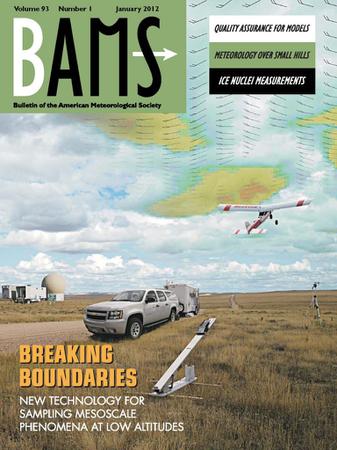气候变化导致纽约市复合洪水风险增加
IF 5.9
1区 地球科学
Q1 METEOROLOGY & ATMOSPHERIC SCIENCES
引用次数: 0
摘要
摘要 近年来,对气候变暖情况下热带气旋(TC)和外热带气旋(ETC)引起的沿海复合浪涌和降雨导致的洪水灾害的变化进行有意义量化的工作不断加强。然而,尽管取得了重大进展,但要获得可操作的细节,如城市洪水灾害变化的空间分布和近因,仍然是一项长期挑战。在这里,我们首次使用由降雨和风暴潮同时驱动的基于物理学的水动力洪水模型来估算复合洪水事件的规模和频率。我们将其应用于纽约市的特殊情况。我们发现,随着气候变暖,仅海平面上升 (SLR) 就会比风暴气候学的变化更显著地增加 TC 和 ETC 复合洪水的危害。我们还预测,到本世纪末,类似桑迪的破坏性复合洪水的重现期将增加多达五倍。我们的研究结果对沿海社区适应气候变化具有重要意义。本文章由计算机程序翻译,如有差异,请以英文原文为准。
Climate change contributions to increasing compound flooding risk in New York City
Abstract Efforts to meaningfully quantify the changes in coastal compound surge and rainfall driven flooding hazard associated with tropical cyclones (TCs) and extratropical cyclones (ETCs) in a warming climate have increased in recent years. Despite substantial progress, however, obtaining actionable details such as the spatial distribution and proximal causes of changing flooding hazard in cities remains a persistent challenge. Here, for the first time, physics-based hydrodynamic flood models driven by rainfall and storm surge simultaniously are used to estimate the magnitude and frequency of compound flooding events. We apply this to the particular case of New York City. We find that sea level rise (SLR) alone will increase the TC and ETC compound flooding hazard more significantly than changes in storm climatology as the climate warms. We also project that the return period of destructive Sandy-like compound flooding will increase by up to five times by the end of the century. Our results have strong implications for climate change adaptation in coastal communities.
求助全文
通过发布文献求助,成功后即可免费获取论文全文。
去求助
来源期刊
CiteScore
9.80
自引率
6.20%
发文量
231
审稿时长
6-12 weeks
期刊介绍:
The Bulletin of the American Meteorological Society (BAMS) is the flagship magazine of AMS and publishes articles of interest and significance for the weather, water, and climate community as well as news, editorials, and reviews for AMS members.

 求助内容:
求助内容: 应助结果提醒方式:
应助结果提醒方式:


